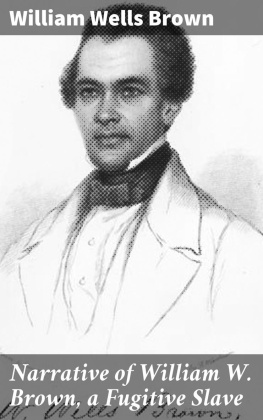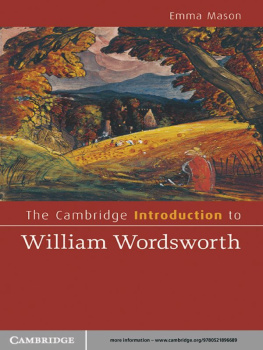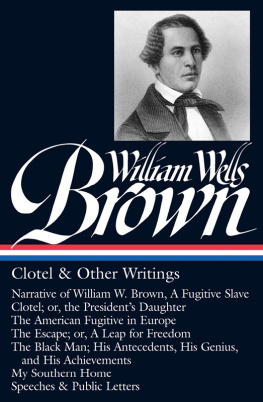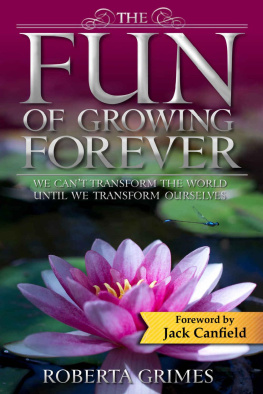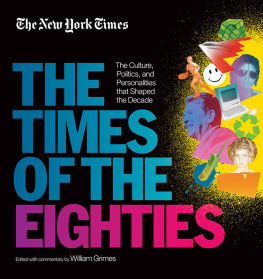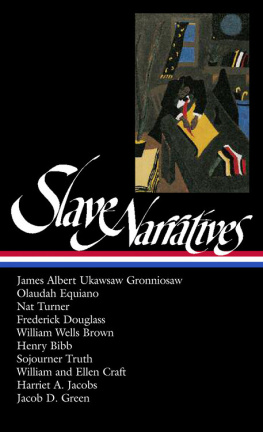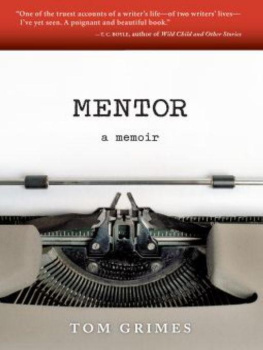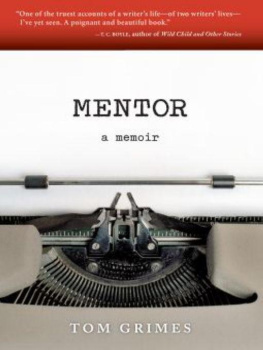Life of William Grimes, the Runaway Slave
Life of William Grimes, the Runaway Slave
Edited by
WILLIAM L. ANDREWS AND REGINA E. MASON


Oxford University Press, Inc., publishes works that further
Oxford Universitys objective of excellence
in research, scholarship, and education.
Oxford New York
Auckland Bangkok Bogot Buenos Aires Cape Town Chennai
Dar es Salaam Delhi Hong Kong Istanbul Karachi Kolkata
Kuala Lumpur Madrid Melbourne Mexico City Mumbai Nairobi
So Paulo Shanghai Singapore Taipei Tokyo Toronto
Copyright 2008 by Oxford University Press
Published by Oxford University Press, Inc.
198 Madison Avenue, New York, New York, 10016
www.oup.com
Oxford is a registered trademark of Oxford University Press
All rights reserved. No part of this publication may be reproduced,
stored in a retrieval system, or transmitted, in any form or by any means,
electronic, mechanical, photocopying, recording, or otherwise,
without the prior permission of Oxford University Press.
Library of Congress Cataloging-in-Publication Data
Grimes, William, b. 1784.
Life of William Grimes, the runaway slave / edited by William L. Andrews
and Regina E. Mason.Rev. ed.
p. cm.
ISBN 978-0-19-534331-1; 978-0-19-534332-8 (pbk.)
1. Grimes, William, b. 1784. 2. SlavesUnited StatesBiography.
3. Fugitive slavesUnited StatesBiography. 4. SlavesVirginiaKing George
CountyBiography. 5. African AmericansConnecticutNew HavenBiography.
6. Grimes, William, b. 1784Family. 7. King George County (Va.)Biography.
8. New Haven (Conn.)Biography. 9. Slaves writings, American.
I. Andrews, William L., 1946 II. Mason, Regina E.
III. Title.
E444.G85A3 2008
306.362092dc22 2007050092
135798642
Printed in the United States of America
on acid-free paper
In memory of
Aunt Katherine Victoria Strothers Webb, for sowing the seeds of the ancestors
And to Brandon, Noelle, and Shelly
REM
Preface
This edition of the Life of William Grimes, the Runaway Slave, Written by Himself had its genesis in a series of letters and emails between Regina Mason, who initiated the exchange, and Bill Andrews, who knew nothing about Regina or the research that she had been pursuing for years on William Grimes. In the fall of 1998, Regina, a native Californian, decided to send Bill, a professor at the University of North Carolina at Chapel Hill, whom she knew only by reputation, samplings from her research. What she had learned through years of painstaking investigation was that William Grimes (17841865) was her great-great-great-grandfather. In addition to her remarkable ancestry, Regina had also recovered the story of how her family had grown from its Connecticut roots to its California branches.
Regina knew that Bill was one of the few scholars who had studied and written about Grimess autobiography. In his 1986 book To Tell a Free Story, Bill had pronounced Grimes the author of the first fugitive slave narrative in American letters. Regina wanted Bill to know about her work because she felt if there was one academic that would be receptive to her research on William Grimes it would be Bill. Neither scholar, historian, nor college graduate, Regina was seeking guidance. She felt she needed the backing of a scholar to help authenticate the volume of research she had compiled on Grimes and his family. Regina also felt strongly that William Grimess voice needed to be heard once again. Since no other academic had taken much interest in her work, Regina didnt know if Bill would either. But she decided to risk sending him a few pages from an unpublished document she had written outlining the body of her research.
Bill responded to what Regina sent him with gratitude and enthusiasm. I was impressed by how much youve found and where youve gone to reconstruct the genealogy of your family and of Mr. Grimes, he wrote. You asked for my criticism and guidance, but I fear I dont have much of either to offer you. I cant criticize what seems to me to be thorough and illuminating. You have quite a story to tell in weaving all these threads together into a coherent narrative. The wealth of information you have uncovered ought to be preserved and published in some fashion.
In August of 1999, Regina informed Bill in an email that further work on her genealogical project had revealed that Grimess youngest daughter (my great-great-grandmother) was a pioneer of the West, who was very much respected in San Francisco as a dramatic performer and who, for a number of years, had a Colored Dramatic Troupe that performed in some of San Franciscos early opera houses. Regina also noted that the Bay Area had begun to show an interest in her work. In October of 1998, KQED television of San Francisco aired a 4-part segment on my research, she noted, which was the local follow-up to the acclaimed Africans in America documentary that had aired nationally on PBS in the fall of 1998.
Regina was curious about a Web site, North American Slave Narratives, that Bill had recently launched with the UNC Library. The site aimed to create for the first time a complete digital library of all the autobiographies composed by those who had endured enslavement in the North America. When, Regina wondered, would the Life of William Grimes appear on the site? Bill replied that he hadnt yet been able to obtain a copy of the Life that was suitable for scanning and digitizing. In May of 2000, Regina put him in touch with the curator of the Whitney Library at the New Haven Colony Historical Society. Just as Regina promised, the society willingly loaned a copy of the 1855 edition of the Life to UNC so that this narrative could become available to Internet readers around the world. By the summer of 2001, through Reginas good offices, North American Slave Narratives featured the full texts of both the 1825 and the 1855 versions of Grimess pioneering narrative.
After a three-year hiatus, Regina emailed Bill again in the fall of 2004, asking if he would review a long personal essay she was on the verge of completing, an account of her research on Grimes and his descendants in California, Connecticut, and Virginia. This gripping essay interwove fragments of family lore; conversations with a great-aunt about an elusive family Bible; an account of a murder in an eighteenth-century Virginia newspaper; a visit to a seventeenth-century plantation; citations from Connecticut property, census, and marriage records; a search for a burial site in a cemetery across the street from Yale Universityall punctuating a chronicle of the life of William Grimes and the family he began with his wife, Clarissa Caesar, in 1819. After reading this essay, Bill realized that Regina was not simply an indefatigable and relentless researcher. She also had constructed a fascinating story about how and why she had undertaken her research, to complement all she knew about the life of William Grimes and the African American family that had descended from him.
After Bill praised her essay, Regina announced yet another discovery of hers: I have in my possession copies of preserved letters negotiating Grimess freedom. The last letter dated April 21, 1824, is from master Welman agreeing to free Grimes for about $500. The first letter is dated August 1823. These new documents, along with everything else she had done to recover William Grimes from undeserved obscurity, led Bill to broach the idea of their collaborating on a new edition of William Grimess
Next page

